Domenica Lorusso
Hello, and welcome to this podcast on the systemic therapies in endometrial cancer. I'm Ketta Lorusso. I'm an GYN oncologist from the Fondazione Policlinico Gemelli in Rome. I'm very happy and honoured to join this podcast with my good friend and fantastic professional speaker, Mansoor Mirza.
Mansoor Raza Mirza
Hi Ketta. Hi Everybody. It's a great pleasure to be here. My name is Mansoor Mirza, as Ketta told [you], and I'm a clinical oncologist from Copenhagen. And it's a great pleasure to discuss this very important topic, systemic therapy in endometrial cancer, which is changing, especially in 2023, there there will be some very important new data that will be coming, you know, every few months, so we will see complete change of the landscape of treatment of these patients.
Domenica Lorusso
Sure, sure, this is a very exciting moment to speak about endometrial cancer. In the next few minutes, we will discuss what is the standard and also the new data that are coming in. But Mansoor, before starting speaking about new drugs, endometrial cancer patients are very complicated patients because of several comorbidities, obesity, older age. Do you consider all these aspects when you decide a treatment for your patient?
Mansoor Raza Mirza
Yeah, they're obese, the median age is about 68 years. So it's quite up, and then, once they are obese, they also have many of these, hypertension, diabetes, coronary heart diseases, and all those things. So that is a very important lesson for us.
Fortunately, the systemic treatment we give in most of the cases, we can manage the comorbidities and give systemic treatment to these patients. So we do consider it. We have to take control of comorbidities. But we can provide state of the art to these patients, even though they are quite comorbid, many of those patients.
Domenica Lorusso
Sure, medical conditions are important to consider, particularly in this population. But actually, we have also several interesting data about the molecular characteristic of this tumour.
Mansoor Raza Mirza
I think that has changed everything, in less than a decade when we saw the data from the Cancer Genome Atlas. And that has completely changed the way we think about treating our patients or doing the clinical research to find new ways. Earlier, we had two types of tumours, the endometroid and non-endometroid, and that's about it. And now we can see that that's not the case, and this is a very heterogeneous disease. So, Ketta, do you want to walk us through the four major groups, although we know that there's much more than that.
Domenica Lorusso
Oh, yes, for sure, basically, as you say, for several years we consider[ed] endometrial cancer as two diseases, but actually, we know that there at least four different tumours, and in particular we know that around 8 to 10% of endometrial cancer present with a mutation in the gene, which is the POLE gene and these are the tumour[s] with the best prognosis. Probably in the future, we will not treat at all these patients. We will perform surgery, but we will not treat with any kind of treatment in the adjuvant setting.
On the opposite, we have the P53mut tumour, which represents around 25% of endometrial cancer. These tumours are very, very, very aggressive and are the tumour[s] which gains major benefit from chemotherapy. But these tumours are very interesting because they present homologous recombination deficiency, and probably in the future, we will have a space for PARP inhibitors in this particular setting of patient.
Then we have a mixed population, as you say, the non-specific molecular profile. That is a really mixed population. They represent about 40% of endometrial cancer. I'm sure that in the future, we will have more granularity and better identify this tumour. What we know now is that these tumours are particularly enriched by hormone receptor positive tumour, and probably this tumour will need hormonal treatment in the future. But probably, and you know better than me, the combination of hormonal treatment and CDK 4/6 inhibitor, as you've demonstrated in the PALEO trial, may be an option for these patients.
And lastly, the last categories, about 30% of endometrial cancer present genomic instability called the microsatellite instability. These tumours have a lot of tumour mutational burden, new antigens, tumour infiltrating lymphocytes. And this is the reason why this tumour seems very prone to respond to immunotherapy because of this genomic instability.
Mansoor Raza Mirza
This is a very good summary of what we have learned. If I can add too, on top of that, if you look the very important thing. If you look just at the, let's say, in endometroid grade 3 tumours, that's a very heterogeneous disease. That small subset it could have the oestrogen receptor, positive or negative. There could be the P53mut patients in there, there could be the patients who have MSI high, a small subgroup in the same one, so you can see that it's a very, very heterogeneous group, and it could be treated very differently. We will come back to how sensitive the patients with MSI high are to the immune therapy to checkpoint inhibitors, but that's another topic.
Before going to immune therapy, I just want to add to what, Ketta just said that I think we have identified quite many druggable targets in endometrial cancer, and we are not going to plan so-called dinosaur trials, everybody gets drug A or drug B. But we are going to plan to pull the subgroups out, the molecular subgroups, and try to give the drugs which are targeted to these subgroups. An example is PTEN mutation. Other examples are PIK3CA, the HER2 or HER2-low, the data is coming. Ketta has very nicely mentioned about HRD and the PARP inhibitors. So, I think we have so many possibilities. KRAS mutation is another subgroup. So we are really moving towards seeing these patients with great opportunities. Take the P53wild-type, and the data we saw last year with SIENDO trial in the subgroup of P53wild-type that has brought us two Phase 3 trials, right? The one with selinexor and one with MDM2 inhibitor. So I think we would be doing these trials, smarter trials to find the drugs for subgroup[s] of patients, and not doing the bigger trials for everyone.
Domenica Lorusso
Sure, a very, very, very personalised treatment, according to the molecular characteristic[s] of tumour. I think that endometrial cancer is among the gynaecological malignancies, the tumour with the great[est] step forward in terms of the molecular profiling, and the match[ing] of the treatment. But coming back to microsatellite instability, you know that among solid tumour endometrial cancer is the tumour with the higher rate of microsatellite instability, and this makes this tumour particularly prone to respond to immunotherapy.
And you are involved in a lot of trial[s] with the immunotherapy in endometrial cancer. Can you give us some information about the approved drugs for endometrial cancer, MSI-high tumour?
Mansoor Raza Mirza
Sure, absolutely. We are in a very great era where we have very important drugs available to our patients, which are very effective for our patients. Two of the drugs are approved, pembrolizumab and dostarlimab, on trials Keynote 158 and GARNET study. GARNET was actually the biggest phase two non-randomised study. And then we saw the further development of pembrolizumab in the MSS, but I believe that we will discuss that later, the study KN775, but we will come back to that.
So, so in the MSI-high population, now we have in the patients who have metastatic relapsed disease, two options available either treat them with single agent pembrolizumab or dostarlimab and response rates are amazing, about 40%, 45% or even higher with the single agent. Remember when I say 45% is amazing. If you look at the response rate of chemotherapy in second line, it's about 10% or even less, whichever chemotherapy or hormonal therapy you take. So this is a completely different ballgame how we are treating our patients, and we will come back to the future. You will soon see the results in MSI-high in front line in stage 3 and 4 in the metastatic and the relapsed disease where we used to give carboplatin paclitaxel how we are going to change that.
Domenica Lorusso
I [cannot wait] for your presentation at SGO Mansoor, and this is really a very good moment for our patients. Immunotherapy single agent in MSI-high, two drugs approved - pembrolizumab and dostarlimab. But the problem is that when we try to use immunotherapy alone in MSS patients, unfortunately, we did not get the same fantastic results [that] we expected, and the response rate was between 10 and 13%. So not so exciting as we expected.
But as you mentioned, we are trying to broaden the indication of immunotherapy in MSS patients. One option is to combine with chemo, and you will present the data of the trial very soon [at] SGO. Another possibility is to combine with antiangiogenic agents. You know, there is a strong rationale in combining immunotherapy plus anti-angiogenic agent to normalize the vascular, to facilitate the tumour infiltrating lymphocytes, spread the maturation of dendritic cells and facilitate antigen presentation. And lastly, downstream, the regulation of PD-L1.
So a lot of reasons why we expect that immunotherapy plus anti-angiogenic agents work together and this is what we demonstrate in Keynote 775 trial. Can you say something about that one Mansoor?
Mansoor Raza Mirza
Oh, absolutely. I will start with the good part. That is the efficacy. First of all, statistics was amazing. This trial had multiple primary endpoints. First, you look at PFS in the MSS population and if that was positive in the intention-to-treat population, and both were positive. The trial was designed for the patients who had already relapsed on carboplatin paclitaxel and had to receive single agent. Typically, what we give is weekly paclitaxel or doxorubicin, and the trial was designed to have head-to-head comparison to mono chemotherapy with one of these two drugs against a combination of pembrolizumab and lenvatinib. And it showed clear clinical and statistical benefit both in MSS and intention-to treat-population when it comes to PFS. It showed the same for the response rates and it showed the same for OS for overall survival in all population[s]. So all six primary end points were completely positive. I think Vicky Makker led this trial, amazing job!
So that is the positive side of the study. I believe that we are going to now discuss the toxicity, the adverse events, which is the difficult part of this study, as the combination is not a piece of cake, it's not a free meal. There's quite a toxicity involved with that, and that had caused that quite many patients had to drop treatment, pause treatment or drop treatment, either one or other or both drugs. But despite of that, you see a great efficacy and survival benefit.
Domenica Lorusso
For sure, Mansoor, I think in my memory is the first time that we have a trial that increased overall survival in second-line setting of endometrial cancer. Seven months more overall survival is something that honestly, we need to consider when we choose treatment [for] our patients.
Mansoor Raza Mirza
Absolutely.
Domenica Lorusso
And I want to [ask] you a very provocative question. We will come back on the discussion of toxicity, which is as you say, a very important topic of this combo. But, you know, there was a pre-planned and not powered, unfortunately, analysis in this trial evaluating the benefit of the combo pembro/lenvatinib also in the MSI-high population, microsatellite unstable patient and they reported an amazing increase in PFS and OS but also 40% overall response rate.
The clinician are quite difficult now, how we have to treat our MSI-high patient? The immunotherapy single agent or the combo, based on this subgroup analyses, in your opinion?
Mansoor Raza Mirza
So Ketta this is the million-dollar question. There are two reasons I would choose a single agent, pembrolizumab or dostarlimab. One reason is that in 775 we did not compare in the MSI-high population the combination of lenvatinib and pembrolizumab against pembrolizumab alone because we know pembrolizumab alone is very effective. So we don't know if the combination is superior. We are trying to do trans-trial comparisons.
That's one reason. And second, as you know, is that pembrolizumab or dostarlimab are extremely effective in this subgroup. And the third thing is the toxicity profile, single agent immune checkpoint inhibitors are much, much easier for patients to tolerate than the combination of pembrolizumab and lenvatinib. So for all these reasons, even though the approval is in all patients, I feel I will not start on combination any of my patients.
I would give them single agent [immunotherapy]. I'm afraid the next question you are going to ask is if they start progressing, are you going to add lenva? We don't have a trial on that. So these are the next trials we have to do to find out. We don't have a trial that if patients had earlier pre-received immune therapy, which we will see now in SGO. After SGO, if the standard of care in first line is changed, not if, but when it will be changed, then how we are going to interpret the data of 775, because these patients will not be immune therapy naive. So we have we have a lot of work to do to find out about these things.
Domenica Lorusso
I fully agree with you. We will work in the future on the sequence of treatment. Considering that immunotherapy will move earlier and earlier in the treatment algorithm. But we will learn also during ASCO the research of another important trial, which is the LEAP-001 trial, comparing carboplatin/paclitaxel with pembro/lenvatinib. And if the trial is in favour of pembro/lenvatinib will have another difficult topic to address. How to treat these patients with the chemo-naive combination or with immunotherapy combination with chemo. As you mentioned, we have to do a lot of work in the coming year so to answer all these questions. But this is another good reason to properly manage the toxicity of this new combination because, yes, for sure, you properly said 66% of patient reduce the dose of treatment, and 33% of them discontinued treatment because of toxicity. But is it so difficult to manage this toxicity in your opinion, Mansoor?
Mansoor Raza Mirza
You have to really learn how to treat the patients. People feel that they can start with a low dose. I think that we have enough data to say that we have to start with the full dose of lenvatinib, 20 milligrams, we cannot start with the low dose. But having said that, you have to really teach your patient, the relatives of the patient, your staff should be very much prepared, your young doctors should be very much prepared. And patients should know that, it's not that you have to call when you have Grade 3 toxicity. Any slight adverse event they have to call and you have to be proactive.
What we do is we have actually in the first cycle every week they are coming to us, we are not calling them, we want to see them. After that, if everything is going fine, we call them every week. And this way, we sort of make a very, very tight action with our patients.
Domenica Lorusso
I fully agree with what you're saying, Mansoor, and the importance to educate the patient, the importance to educate the staff, the importance to follow in a very proper way the patient, particularly at the beginning. You know that hypertension, the first occurrence of hypertension is two weeks after starting treatment. And the idea you have to follow every single week the patient is a very good idea, at least at the beginning, in order to identify hypertension.
So another topic is hyperthyroidism. You know, that is a huge number of patients that tend to develop hypothyroidism, which is a typical side effect of pembro, also then on the lenva, and this patient would [be] check[ed] for hormones, thyroid hormones every other cycle. So I think you properly said, we have to perform a learning curve in the management of this new combo.
But I think, and probably you will agree with me, the worst thing that we can do is not to offer the best treatment to our patients because we are unable to manage the toxicity.
Mansoor Raza Mirza
Oh, I completely agree, and what we do is we try to be very easy to reduce the dose very quickly if patients, and we didn't mention the diarrhoea that may come even earlier than one week. So we have to reduce the dose or pause the dose and restart on the lower dose. Many of my patients come down to 14 milligrams and even lower. But I try to continue the lenvatinib as long as possible to continue the treatment.
I can give you example of two of my patients. That's amazing stories. One patient she, after starting she had so much diarrhoea and she had to be reduced to 12 milligrams. And after four weeks, she came to me. She said, 'Mansoor I think my disease is progressing, and I'm feeling like so bad I don't want to continue'. I said okay, we had to wait for a scan in eight weeks, I can get [a] scan now. And I did scan, and she had almost complete remission. She had huge disease [to begin with], she had almost complete remission. She just changed her mind, 'Mansoor I'm fine', and in eight weeks she had complete remission. And that's one year ago. And in June last year, I had to stop her treatment both for pembro and lenva because of the terminal ileitis and severe toxicity of lenvatinib. So she's off treatment since June, and we are waiting. I have agreed with her it's a pause. In case something happens, we will restart. She's in complete remission.
Domenica Lorusso
Wow! Amazing story.
Mansoor Raza Mirza
And the second patient, she's a GP, a retired GP, and she decides a lot of treatment herself. She doesn't listen to me. So she went down all the way to four milligrams of lenva and I was telling her, no, please don't do that, please don't do that. And she had so much disease burden. And on the last scan about two months ago, we saw that she was starting progressing. And then she had [gone] back to 14 milligrams, and again you see shrinkage of the tumours. So, you know, this is an amazing combination, very difficult, but you can manage [it], you can teach your staff, you can teach your patients, and you can manage that. And remember, when patients will see the efficacy, they will accept to continue the treatment.
And we should consider really consider this [treatment] to our other patients with MSS.
Domenica Lorusso
Sure, sure. I fully agree. And also, considering that once you identify the proper dose, the data of Keynote 775 clearly reported there is no worsening in quality of life of these patients. Keynote was the only trial reporting quality of life data in endometrial cancer and it was really really reassuring, really reassuring. So Mansoor, we're very close to the end of this podcast, but before closing, I want to give a picture to what will happen in 2023 and 2024 in endometrial cancer patient treatment. A lot of trial ongoing, very exciting results in the adjuvant and metastatic setting. Can you give us an update on what will happen?
Mansoor Raza Mirza
Oh yes, we are privileged to be part of it. I would say we're going to completely change the management of our patients and improve their survival. So basically I would say I could divide this tsunami of trials into three parts. One is that we are trying to ask the question, if adding immune checkpoint inhibitors to the standard of care chemotherapy is going to do better than chemotherapy alone. So it's an add-on treatment. And then you will see the first trial results, which I will present in March is the ENGOT-en6/RUBY trial. You will see most probably that the dMMR part after GY018, the NRG trial in ASCO and you will probably see Dr. Nicoletta Colombo's ATTEND trial results later this year.
So these things are coming in. And the second question we can ask is if we really need chemotherapy or we can replace carboplatin paclitaxel, we can give it later upon relapse. If they relapse, and do a non-chemotherapy regimen and there the first readout probably will be at ASCO the LEAP-001, as you mentioned, that's pembro/lenva against carboplatin paclitaxel.
And then I like the most, most nicest trials, two of them, are the trials being done in the biomarker positive population that is MSI-high. And there you are replacing with single agent immune checkpoint inhibitor against carboplatin paclitaxel. One is your trial, ENGOT-en15, and the other is the GINECO group’s trial. A nice name of that trial.
Domenica Lorusso
Yes, I have to say yes. The DOMENICA trial, a really nice name!
Mansoor Raza Mirza
And that is taking dostarlimab against carboplatin paclitaxel. So you can imagine, and I'm not saying if, when we see the results and they will be very positive, we are going to change the management of our patients. The third group, I would say, is even going further. So the patients first receive chemotherapy, and in the chemotherapy they are randomized to immunotherapy or placebo and then they finish chemotherapy, you add PARP or placebo on top of that. There are two trials, the RUBY part 2 and ENGOT-en6 part two and the DUO-E trial, and I think we will see the results of DUO-E in fall this year.
Domenica Lorusso
Many data we will manage in the coming years.
Mansoor Raza Mirza
For so many years we had nothing more to add to these patients than carboplatin paclitaxel or single agent chemotherapy or single agent hormonal therapy and what we are moving in such a short time, this is amazing.
Domenica Lorusso
Yes, it is. It is.
Mansoor Raza Mirza
It's a privilege to be part of this.
Domenica Lorusso
Yes, sure. We are lucky. We are lucky. Our patients are lucky, but we have lucky to be part of the change. And Mansoor your enthusiasm is very contagious, and it was an honour and a great pleasure to record this podcast with you. So thank you so much for being here with me this afternoon.
Mansoor Raza Mirza
Thank you. And I just want to say that, please, one thing which has changed the way we are treating our patients, that we are testing all of our patients for molecular classification so we can treat them accordingly. So please go back to your clinics and remember your patients deserve to be tested for molecular classification.
Domenica Lorusso
Sure. This is a very, very important message. So thank you again. And before we close, I invite all of you to listen to the other episode of this podcast series as well, which will be completely dedicated to the management of toxicity of systemic therapies in endometrial cancer. So the full series is available on COR2ED.com and on your preferred podcast platform. Thank you so much again.
Mansoor Raza Mirza
Thank you.
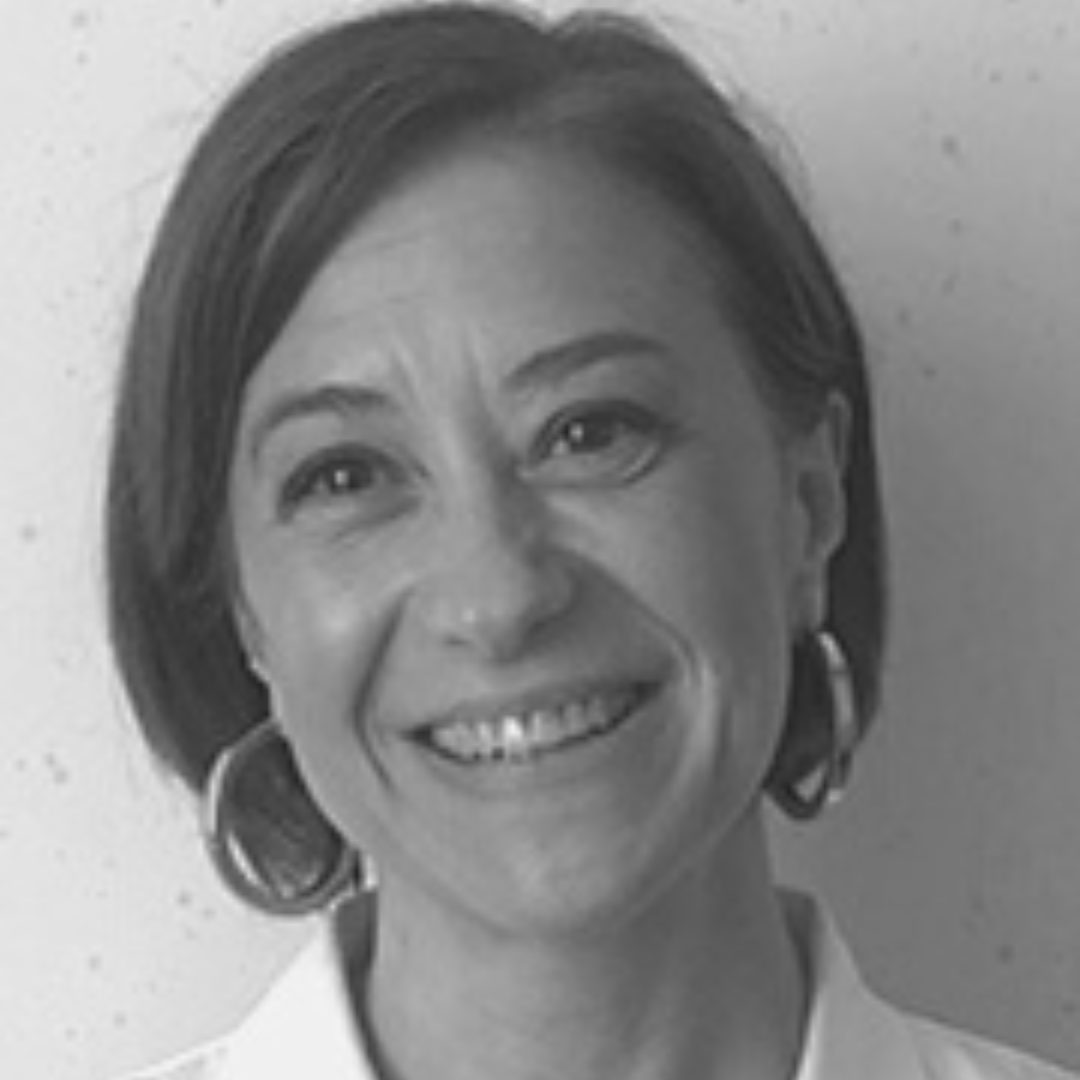

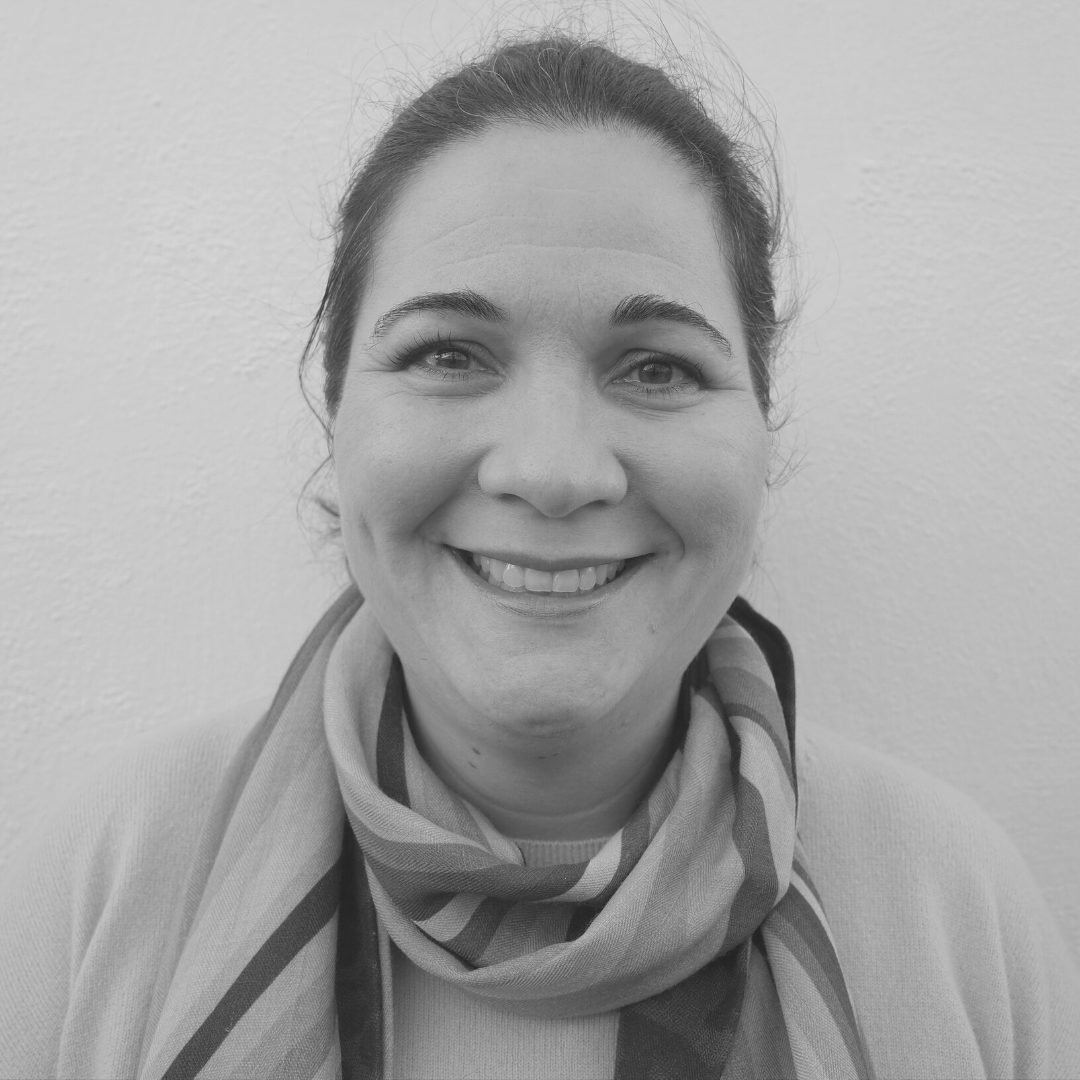
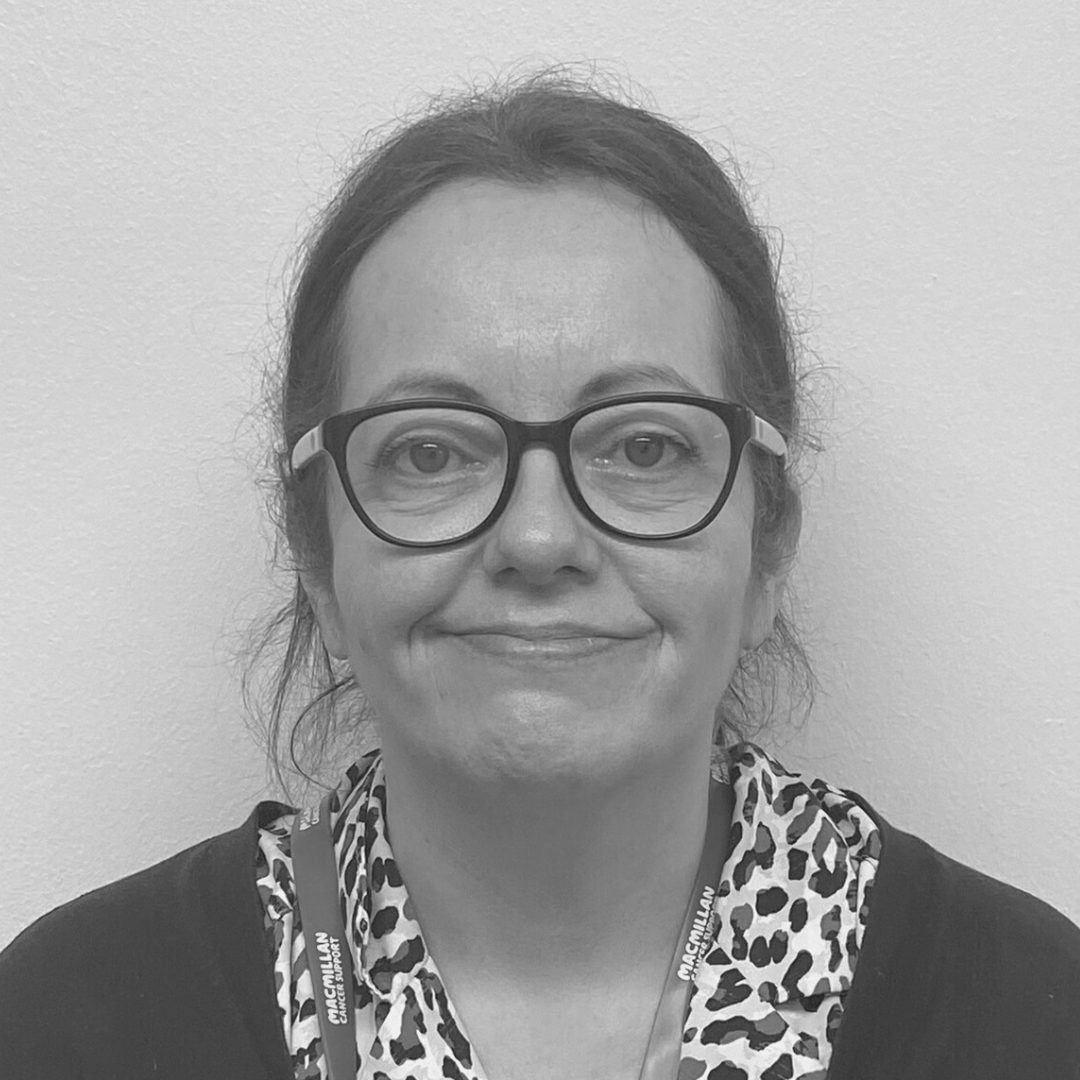


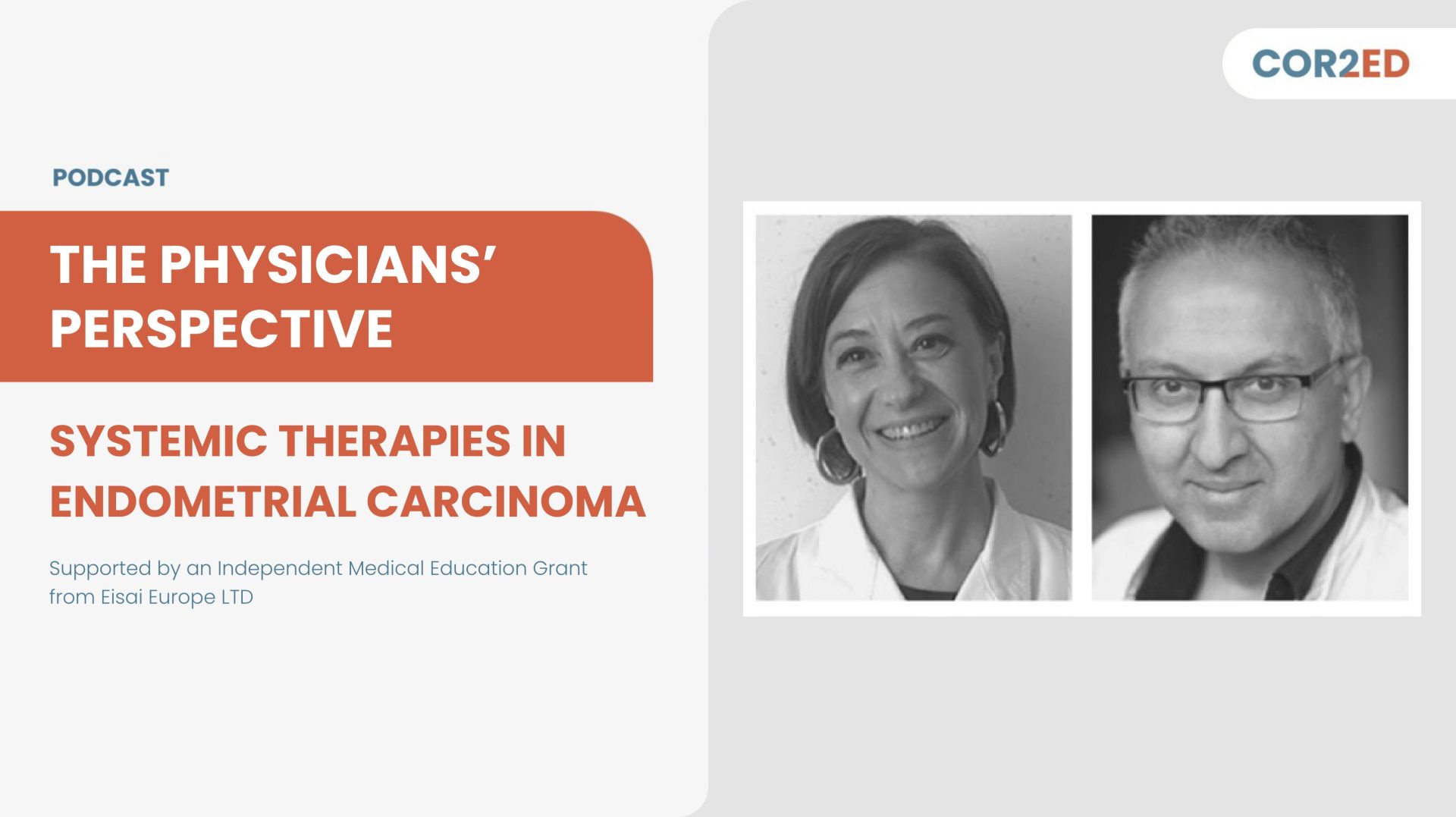
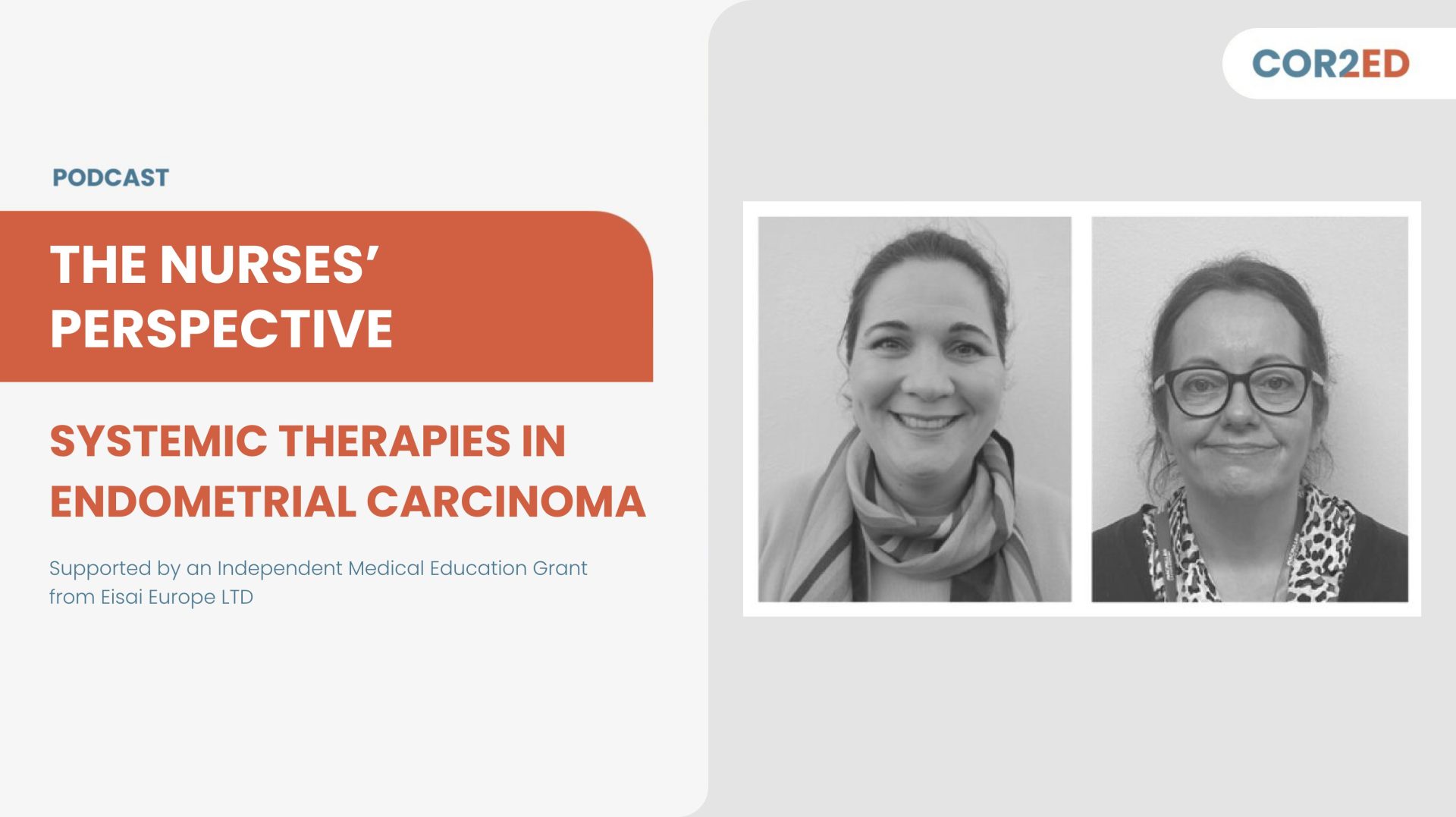
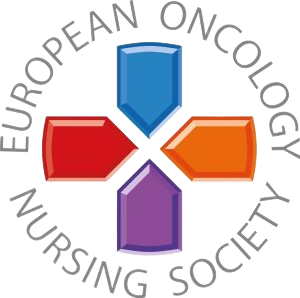




 Downloadable
Downloadable  5 MIN
5 MIN
 Jun 2025
Jun 2025 






